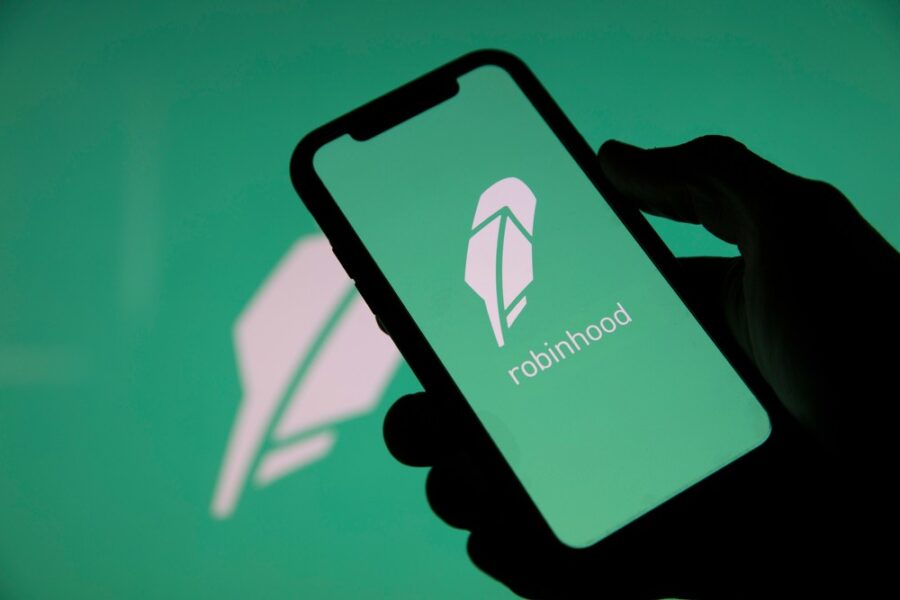Robinhood eyes overseas expansion for prediction markets

Trading platform Robinhood Markets is extending an international rollout of its prediction markets business, a step that would push the fast-growing product beyond the US.
According to Bloomberg, the company has begun talks with regulators abroad, including the UK’s Financial Conduct Authority, to assess how such products might be structured under local frameworks.
In the US, the Commodity Futures Trading Commission regulates prediction markets as futures contracts. However, in many countries, they fall under gambling oversight.
Speaking to Bloomberg, Vice President, and General Manager of Futures and International at Robinhood, JB Mackenzie, said the firm has been seeking clarity. “It’s a swap here in the United States. So the question would be where is swap oversight, let’s say in the UK? That’s a question that we’ve been asking the Financial Conduct Authority, how do we work it?”
Despite its growth, prediction markets have attracted criticism for enabling wagers on sensitive issues, from natural disasters to high-profile deaths.
Robinhood has opted to avoid controversial listings, with Mackenzie stating, “Just because something goes viral, meaning it hits the various social media platforms, it doesn’t mean that’s something that we’re going to look to offer as a product.”
Expanding overseas for Robinhood could expand revenue streams, and, Mackenzie stressed, “My goal or focus is to make sure it’s a regulatory-compliant product everywhere we go.”
After pushing into prediction markets, a report from investment firm Piper Sandler last month showed that sports betting and events contracts had already generated US$200 million for Robinhood.
Abi Bray brings strong researching skills to the forefront of all of her writing, whether it’s the newest slots, industry trends or the ever changing legislation across the U.S, Asia and Australia, she maintains a keen eye for detail and a passion for reporting.
Verticals:
Sectors:
Topics:
Dig Deeper
The Backstory
From novelty to a core growth pillar
Robinhood’s push into prediction markets has shifted from experiment to strategy. The company formally introduced an in-app hub for event contracts through its derivatives unit ahead of March Madness, giving eligible customers access to trading on outcomes via partner exchange Kalshi, which is regulated by the Commodity Futures Trading Commission. The rollout, described as a way to connect finance with culture, politics and sports, came after an aborted Super Bowl debut when federal regulators stepped in and the company halted plans to launch sports contracts tied to the game. That early clash underscored the central tension of Robinhood’s move: products that look and feel like sports bets, but live under federal derivatives rules rather than state gambling laws. The company has emphasized it will keep the offering within regulatory guardrails and avoid controversial markets that could draw public backlash.
The thesis got a faster test during football season. Robinhood added event contracts for the NFL and college football, leaning on a peer-to-peer market structure—buyers and sellers set prices—that management argues is closer to stock trading than sportsbook lines. The timing proved important. Kalshi reported record activity driven by football demand, while Wall Street analysts said trading volume and engagement benefits could make prediction markets a meaningful revenue contributor. Piper Sandler later estimated Robinhood’s sports and event contracts had already generated about $200 million, prompting a price target hike and fresh buy calls as shares rallied this year.
Legal gray zones become the battleground
Growth has arrived alongside a patchwork of challenges. Several states have tried to wall off the products, asserting they are gambling under state law regardless of how federal derivatives rules classify them. Kalshi has pushed back. In Maryland, the company sued the state lottery regulator after a cease-and-desist order, arguing state intervention is preempted by the federal framework that governs futures and event contracts on designated exchanges. A Nevada judge granted Kalshi a temporary injunction in a separate dispute, signaling that more courtroom tests are likely as jurisdictions sort out which regulator is in charge and how these instruments fit into existing statutes.
Massachusetts shows how those jurisdictional lines can shape competitive dynamics. The state allows mobile sports betting but bans wagers on in-state college teams, a restriction that tripped up traditional operators. Robinhood, through its CFTC-regulated setup with Kalshi, signaled customers could still access event contracts on local colleges, effectively skirting a rule that binds sportsbooks. That drew scrutiny. The Massachusetts Gaming Commission said it is monitoring the CFTC’s posture and the market’s growth, while Secretary of State William Galvin opened a probe into Robinhood’s sports-linked contracts. The episode crystallizes the stakes for brokers, exchanges and states: whether federal oversight of event contracts can supersede, or at least sidestep, state-level gaming prohibitions.
Rivals, product design and the question of where the line is
Product scope is another fault line. Kalshi, which powers Robinhood’s market access, has moved to expand its slate, including props and parlays that typically live in sportsbook menus. That step, undertaken amid active legal disputes, raises fresh questions about how far event contracts can stretch before regulators or courts say they are functionally sports bets. The company has framed its sports contracts as peer-to-peer swaps under CFTC jurisdiction, but the more the products mirror classic gambling formats, the harder it may be to maintain that distinction. The divergence in offerings also matters for Robinhood, which has said it will avoid viral but sensitive markets and keep its catalog within the confines of what it believes regulators will allow.
Timing and seasonality complicate the calculus. Robinhood limited initial NFL and college football markets to early-season windows with plans to add weekly markets over time. That measured approach potentially lowers regulatory temperature while letting the company hone liquidity, pricing and risk controls. Meanwhile, the March Madness launch validated the use case for major sports tentpoles and helped build user habits. Rival platforms are pursuing similar calendars, intensifying competition for liquidity and creating incentives to push boundaries on market design. How regulators interpret props, parlays and non-sports “news” contracts will influence whether the segment stays a niche trading product or evolves into a mainstream alternative to betting apps.
International ambitions meet a fragmented rulebook
With the U.S. landscape unsettled, Robinhood is preparing overseas moves. The company has opened talks with regulators, including the U.K. Financial Conduct Authority, to map how event contracts would be classified abroad and whether they sit under swaps oversight, gambling law or a hybrid regime. Management has framed the exercise as a compliance-first expansion that could diversify revenue and reduce dependence on U.S.-specific interpretations. The cross-border challenge is sharper because many countries default to gambling supervision for prediction products, a model that would change tax, licensing and marketing obligations. Robinhood has signaled it will adapt design and listings to local frameworks and continue filtering out controversial topics regardless of jurisdiction.
A successful international launch could also hedge domestic risk. If U.S. states win more authority to police event contracts as gambling, margins and product breadth could tighten at home. Conversely, if federal preemption prevails in court, the U.S. could remain the engine of volume while other markets adopt more conservative rules. Either way, regulatory clarity abroad would give Robinhood and partners like Kalshi a second proving ground for event-driven trading and a path to year-round demand beyond American sports seasons.
The stakes: revenue now, rules later
For investors, the near-term story is monetization versus legal friction. The $200 million revenue lift tied to event contracts showcases the category’s potential, and analysts have highlighted upside tied to football seasonality and product iterations. But the Maryland lawsuit, the Massachusetts investigation and earlier federal intervention around the Super Bowl illustrate how quickly momentum can meet resistance. Each ruling or enforcement action features ripple effects for pricing, product menus and marketing claims. A ruling that reinforces CFTC jurisdiction could open the door to broader listings and deeper liquidity. A contrary outcome could push platforms toward narrower contracts, higher compliance costs or state-by-state licensing that mirrors sportsbooks.
For policymakers, the choice is whether to treat event contracts as a distinct financial product or as gambling by another name. The answer carries implications for tax regimes, consumer protections and market surveillance. For platforms, the operational question is how to scale responsibly: balancing the efficiency of peer-to-peer markets with guardrails that address problem gambling concerns and the optics of betting on sensitive outcomes. Robinhood’s careful curation and international outreach suggest an attempt to thread that needle. The next wave of court decisions and regulator guidance will determine whether prediction markets remain an adjunct to trading apps or become a central pillar of fintech growth.
Read more: Robinhood’s international talks about prediction markets oversight in the U.K. and elsewhere are detailed in reporting on its planned overseas expansion. The company’s football-season launch strategy is covered in its NFL and college markets rollout. Background on the March Madness debut and the CFTC’s earlier Super Bowl intervention is here. Analyst commentary on the roughly $200 million impact comes from a report on revenue momentum and Wall Street sentiment. The Massachusetts regulatory tussle is outlined in coverage of in-state college access via event contracts, while Kalshi’s legal response to state crackdowns is summarized in its Maryland lawsuit. For context on product evolution amid unresolved rules, see analysis of Kalshi adding props and parlays.




